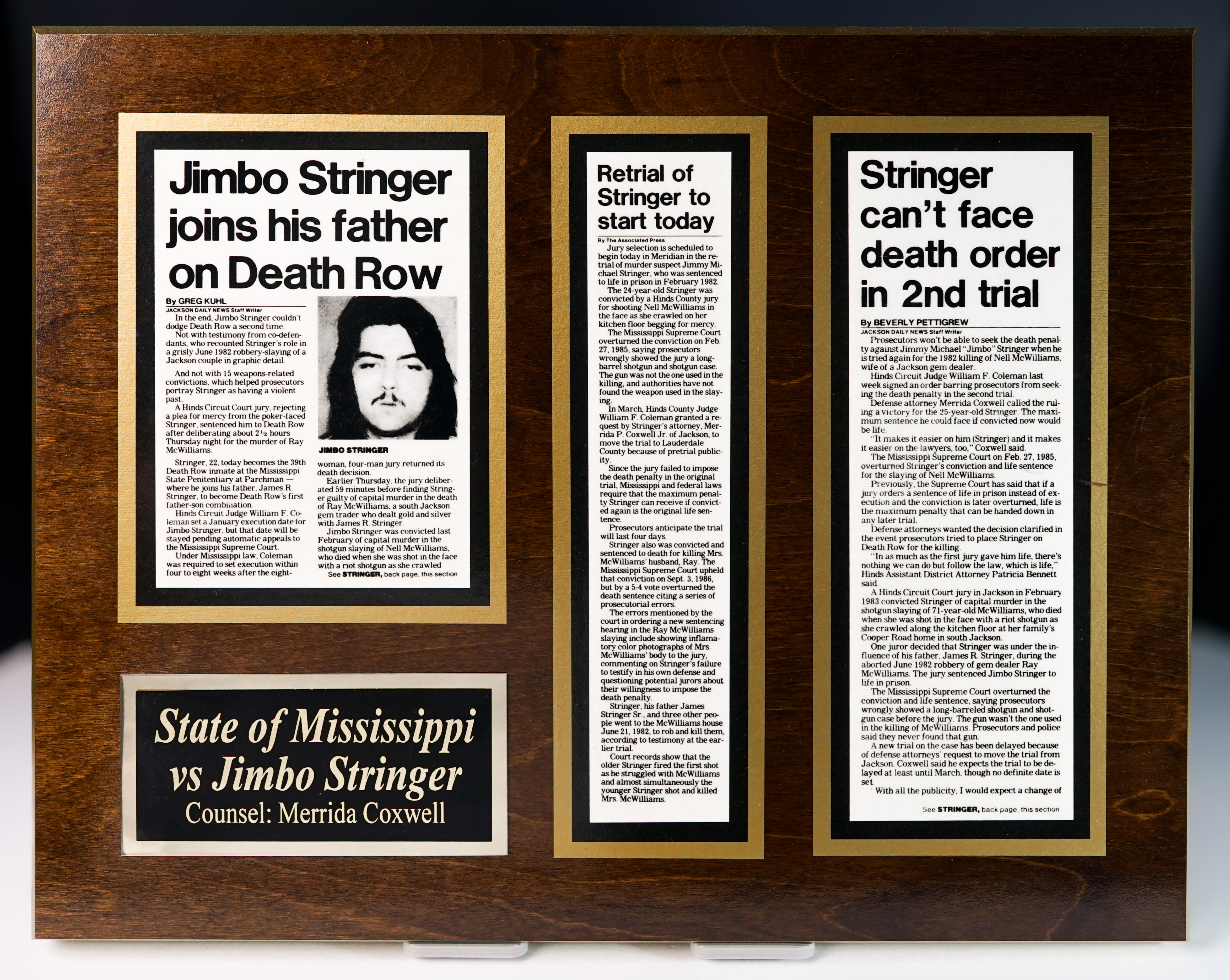Courts in Rankin County
Rankin County is one of 19 counties in the state of Mississippi with a County Court. The legislature created these County Courts to reduce the workload of the Chancery Courts and the Circuit Court. The two County Court Judges in Rankin County are Judge Kent McDaniel and Judge Thomas Broome. These two Judges have exclusive jurisdiction over matters involving unlawful entry and detainer, eminent domain, partition of personal property and youth courts. County Courts share jurisdiction with Justice Court in all criminal and civil matters. Matters of law and equity up to $200,000 have shared jurisdiction between the County Court and the Chancery and Circuit Courts. Non-capital felony criminal cases can also be heard by County Court Judges when those cases are transferred by the Circuit Court.
Rankin County Circuit Court has three judges: Honorable Steve Ratcliff, Honorable John Emfinger and Honorable Dewey K. Arthur. The Circuit Court tries felony criminal cases and misdemeanors on appeal as well as any type of civil action which is above $2,500. The Mississippi Supreme Court hears appeals from the Circuit Courts. Juries are generally implemented in Mississippi Circuit Courts, with a unanimous vote of twelve necessary for a criminal offense conviction and nine out of twelve for a civil judgement. Mississippi’s Circuit Courts are typically the most expensive courts in the county, however these courts must be maintained efficiently.
The Rankin County Justice Court has four Judges: Richard Redfern, John Shirley, Joshua McCrory and Ken Fairly. The County Justice Court Judges are elected by judicial district however these judges have county-wide jurisdiction, handling both non-jury and jury criminal cases and non-jury and jury civil cases. The Rankin County Justice Court Judges are also authorized to perform weddings in Rankin County. The Rankin County Court is at 301 East Government Street in Brandon, Mississippi, the Rankin County Justice Court is at 117 North Timber Street, Brandon, Mississippi, the Rankin County Chancery Court is at 203 North Street, Brandon, Mississippi and the Rankin County Circuit Court is at 215 East Government Street, Brandon, Mississippi.
Criminal and Civil Cases in Rankin County
A criminal case in Rankin County will either be a felony or a misdemeanor. A misdemeanor conviction sentence cannot exceed a year in county jail, while a felony conviction can result in a prison term in the Mississippi State Penitentiary. Crimes are prosecuted in the counties where the criminal offense occurs. For misdemeanor criminal cases, every Tuesday is “plea” date, where those charged with a misdemeanor must enter a “not guilty” or “guilty” plea. A trial date is set for those pleading “not guilty,” while the judge must determine whether a person who chooses to plead guilty is fully understands the charges as well as the potential penalties associated with a guilty plea.
The person pleading guilty must also understand that he or she is waiving the constitutional right of a trial by jury, the right against self-incrimination and the right to cross-examine and confront adverse witnesses. When a plea of guilty is entered, the judge could order fines, jail time, house arrest, unsupervised or supervised probation, community service, vehicle immobilization, domestic violence counseling, restitution, anger management counseling, drug and alcohol assessment and treatment, Mississippi Alcohol Safety Education Program or a victim’s impact seminar. Some examples of misdemeanor cases in the state of Mississippi include DUI, possession of marijuana (less than 30 grams), carrying a concealed weapon, simple battery, shoplifting (merchandise worth less than $500) and petty theft.
Some examples of felonies in the state of Mississippi include capital murder, murder, manslaughter, sexual battery, domestic violence, robbery, computer fraud (when damage or loss is more than $500), drug possession and drug trafficking. Felony convictions can result in prison time, fines, probation, community service and other penalties as well. Statutes of limitations exist for both misdemeanor and felony cases. This means there is a specific length of time from the time the crime was committed—or believed to have been committed—in which to charge a defendant. Some crimes, like murder, have no statutes of limitations. Civil cases are those in which the amount sued for does not exceed $3,500, such as evictions, replevins, debt collection matters and torts. Civil claims also have statutes of limitations which may not be exceeded. If you have been charged with a criminal offense, it is extremely important to speak to an experienced Mississippi criminal offense attorney.













